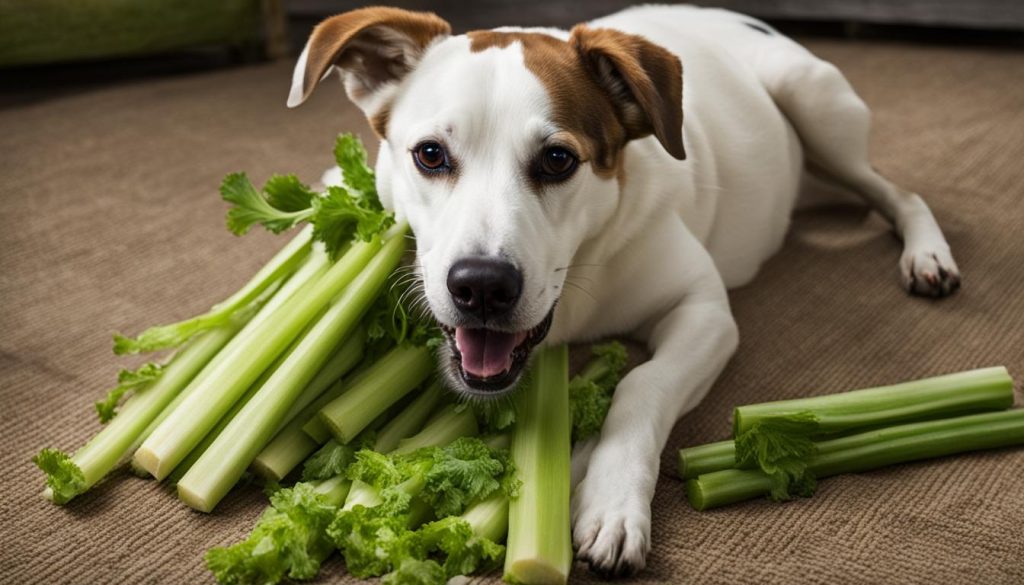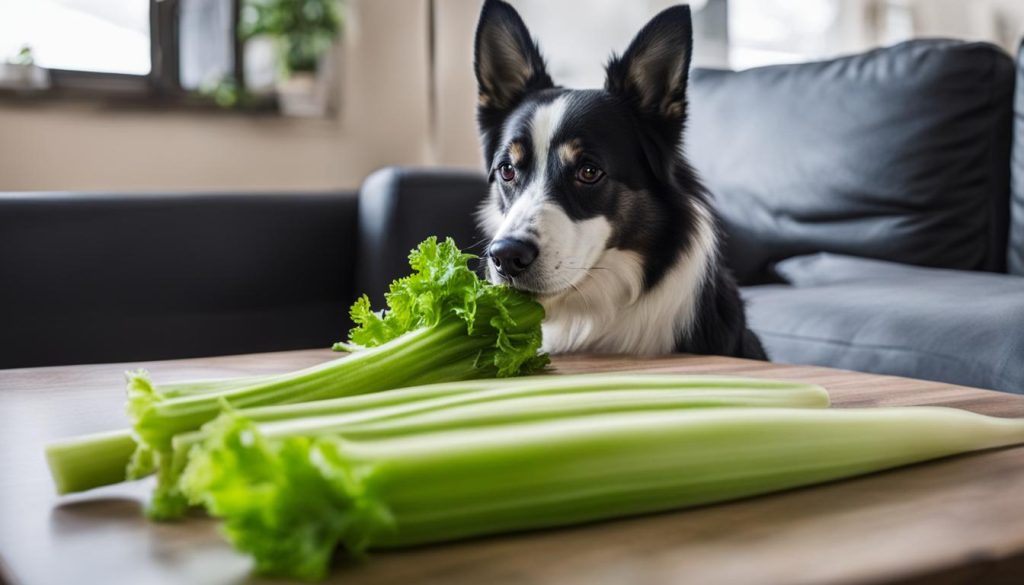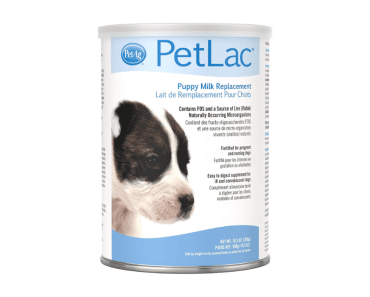Welcome to my guide on dogs and celery! If you’re wondering whether it’s safe for your furry friend to enjoy this crunchy vegetable, you’ve come to the right place. In this article, I’ll discuss the health benefits of celery for dogs, its role in their diet, and how to serve it safely. So, let’s dive in!
When it comes to feeding dogs, a complete and balanced diet is essential. However, in moderation, some fruits and vegetables can make healthy treats. Celery is one such vegetable that is safe for dogs and is even recommended as a weight-loss snack.
Celery offers numerous health benefits for dogs. It is low in fat and cholesterol, making it an excellent choice for those watching their weight. Additionally, it is packed with fiber, vitamins A, C, and K, folate, potassium, and manganese, which contribute to their overall well-being.
It’s important to note that while celery can be fed as a treat, it should not replace your dog’s main nutrition. Treats should only make up about 10 percent of their daily diet. Also, keep in mind that celery can pose a choking hazard, particularly for small dogs. Therefore, it’s crucial to cut it into bite-size chunks before offering it to your furry companion.
Before introducing any new food item into your dog’s diet, it’s always best to consult with your veterinarian. They can provide personalized advice based on your dog’s specific needs and dietary requirements.
So, if you’re wondering, “Can I give my dog celery?” the answer is yes, but with caution. Remember to serve it in moderation, cut it into safe portions, and always prioritize your dog’s safety and health. Stay tuned for more insights on dogs and celery in the upcoming sections!
Is Celery Safe for Dogs?
When it comes to feeding our furry friends, it’s important to ensure that the food we give them is safe for their consumption. One question that often arises is whether celery is safe for dogs. According to multiple sources, including Vetstreet.com, celery is listed as a safe vegetable for dogs.
So why is celery considered safe for our canine companions? Firstly, celery is low in fat and cholesterol, making it a healthy option for dogs. It also contains several beneficial nutrients such as fiber, vitamins A, C, and K, folate, potassium, and manganese. These nutrients contribute to overall health and well-being in dogs.
However, it’s important to keep in mind that every dog is unique, and what may be safe for one dog may not be suitable for another. Therefore, it’s always advisable to consult with a veterinarian before introducing new foods into your dog’s diet, including celery.
Is Celery Safe for Dogs?
When it comes to feeding our furry friends, it’s important to ensure that the food we give them is safe for their consumption. One question that often arises is whether celery is safe for dogs. According to multiple sources, including Vetstreet.com, celery is listed as a safe vegetable for dogs.
So why is celery considered safe for our canine companions? Firstly, celery is low in fat and cholesterol, making it a healthy option for dogs. It also contains several beneficial nutrients such as fiber, vitamins A, C, and K, folate, potassium, and manganese. These nutrients contribute to overall health and well-being in dogs.
However, it’s important to keep in mind that every dog is unique, and what may be safe for one dog may not be suitable for another. Therefore, it’s always advisable to consult with a veterinarian before introducing new foods into your dog’s diet, including celery.
How Much Celery Can Dogs Eat?
When it comes to incorporating celery into a dog’s diet, moderation is key. Treats should only make up 10 percent of a dog’s daily food intake, including celery. The portion size of celery will depend on the other treats your dog receives and the amount of food they consume. It is important to cut celery into bite-size chunks to avoid choking hazards, especially for small dogs.

To determine the appropriate amount of celery to feed your dog, it is advisable to consult with your veterinarian. They can provide guidance based on your dog’s specific needs and dietary requirements. Your vet will take various factors into consideration, such as your dog’s size, weight, overall health, and any existing medical conditions.
Remember, while celery can be a healthy addition to a dog’s diet, it should not replace their main source of nutrition. It is always best to consult with a professional to ensure that you are providing your furry friend with the appropriate amount of celery and a balanced diet.
Risks of Feeding Celery to Dogs
While celery is generally considered safe for dogs, there are some risks associated with feeding it to your furry friend. One of the main risks is the potential for choking, especially in small dogs. Celery can easily get lodged in their throat if not cut into bite-size chunks. Therefore, it is crucial to take the time to properly prepare the celery before offering it to your dog as a snack.
Another risk to be aware of is the possibility of an upset stomach. Some dogs may have a sensitive digestive system and may experience discomfort or diarrhea after consuming celery. It is important to monitor your dog’s reaction and consult with your veterinarian if you notice any adverse symptoms.
Further Considerations
While celery is generally considered a healthy snack for dogs, it may not be the best choice for every individual. Each dog is unique, and their dietary needs and tolerances can vary. It is always a good idea to consult with your veterinarian before introducing any new food item into your dog’s diet.
To ensure the safety of feeding celery to your dog, it is recommended to follow the appropriate portion sizes and cut the celery into manageable pieces. Remember that celery should only make up a small portion of your dog’s overall diet, and treats in general should not exceed 10 percent of their daily food intake.
By being mindful of the risks and consulting with your veterinarian, you can safely incorporate celery into your dog’s diet as a healthy and enjoyable snack option.

Do Dogs Like Celery?
When it comes to dogs and celery, preferences can vary from one furry friend to another. While some dogs may enjoy the crunch and taste of celery, others may show no interest at all. As scavenger carnivores or omnivores, dogs have the ability to eat vegetables along with their meat-based diet. However, it’s important to note that celery is not an essential part of a dog’s diet, so if your pup doesn’t seem to like it, there’s no need to force them to eat it.
Dogs have unique tastes and preferences, just like us humans. So, it’s hard to say whether or not they will like celery until they give it a try. Some dogs may find the texture and flavor of celery appealing, while others may not show much interest. As a pet parent, it’s always a good idea to introduce new foods slowly and observe your dog’s response to ensure their safety and well-being.
While celery may not be a favorite snack for all dogs, there are plenty of other healthy options to choose from. If you’re looking to incorporate more vegetables into your dog’s diet, it’s best to consult with your veterinarian to determine the most suitable choices based on your dog’s individual health needs and preferences.
Health Benefits of Celery for Dogs
Celery offers several health benefits for dogs, making it a nutritious and beneficial addition to their diet. First and foremost, celery is low in calories, making it an ideal snack for dogs who are on weight-loss diets or need to maintain a healthy weight. The fiber content in celery also aids in digestion and can help regulate bowel movements in dogs.
Additionally, celery has a crunchy texture that can help promote dental hygiene in dogs. Chewing on celery stimulates saliva production, which can help reduce plaque and bacteria in their mouth, leading to fresher breath and better overall oral health. This natural teeth-cleaning action can be a great alternative to traditional dog dental treats.
Furthermore, celery is packed with beneficial vitamins and minerals that support your dog’s overall health and well-being. It is rich in vitamins A, C, and K, which are essential for a strong immune system, healthy skin, and proper blood clotting. Celery also contains folate, potassium, and manganese, which contribute to the proper functioning of various bodily processes in dogs. By incorporating celery into your dog’s diet as a healthy snack, you can provide them with these essential nutrients.
The Importance of Moderation and Veterinary Guidance
While celery offers numerous health benefits for dogs, it is important to remember the importance of moderation. Treats, including celery, should only make up 10 percent of a dog’s daily diet, and the portion size of celery should be appropriate for your dog’s size and nutritional needs. It’s always best to consult with your veterinarian before introducing any new food item into your dog’s diet to ensure it is safe and suitable for their specific health requirements.
In conclusion, celery can be a healthy and tasty addition to your dog’s diet, providing them with essential vitamins, minerals, and dental benefits. By offering celery in moderation and under the guidance of your veterinarian, you can help support your dog’s overall health and well-being.
Can Dogs Eat Celery with Peanut Butter and Raisins?
Many dog owners wonder if it is safe for their furry friends to enjoy celery with peanut butter and raisins. While dogs can indeed eat celery with peanut butter, it is crucial to exercise caution when selecting the peanut butter. Make sure that it does not contain xylitol, a sweetener that is toxic to dogs. Some peanut butter brands may include this ingredient, so always read the label carefully before offering it to your dog.
On the other hand, it is important to note that raisins and grapes are highly toxic to dogs and should never be fed to them. These fruits can cause kidney failure and other serious health issues in dogs. Therefore, it is best to avoid combining celery with raisins or any other grape products when offering it as a treat to your furry companion.
Remember, the safety and well-being of your dog should always be a top priority. If you are unsure about any food item or ingredient, it is best to consult with your veterinarian for guidance. They can provide specific recommendations based on your dog’s individual needs and health conditions, ensuring that they enjoy safe and healthy treats.
Can Dogs Drink Celery Juice and Eat Celery Seeds?
When it comes to celery, dog owners often wonder if their furry friends can enjoy celery juice or celery seeds. Let’s explore these two aspects.
Celery juice can be given to dogs in small amounts. However, it’s essential to remember that juices are usually concentrated, so starting with a small quantity is advisable. Monitor your dog’s reaction to ensure they tolerate it well.
As for celery seeds, they can be beneficial for dogs when used correctly. However, it’s crucial to consult with your veterinarian before introducing them to your dog’s diet. Your vet will consider any existing health conditions or medications your dog may be on to determine if celery seeds are safe for them.
FAQ
Is celery safe for dogs?
Yes, celery is safe for dogs to eat in moderation. It is often recommended as a healthy treat.
How much celery can dogs eat?
The portion size of celery will depend on your dog’s diet and the treats they receive. It is best to consult with your veterinarian to determine the appropriate amount.
What are the risks of feeding celery to dogs?
Celery can pose a choking hazard, especially for small dogs. It is important to cut celery into bite-size chunks before feeding it to your dog.
Do dogs like celery?
Dogs’ preferences can vary, so it is hard to say if they will like celery until they try it. Some dogs enjoy the crunch and taste of celery, while others may not show interest.
What are the health benefits of celery for dogs?
Celery is low in calories and can be a suitable snack for dogs on weight-loss diets. It can also promote dental hygiene by stimulating saliva production and removing bacteria from the mouth. Celery is rich in vitamins and minerals, contributing to overall health and well-being in dogs.
Can dogs eat celery with peanut butter and raisins?
Dogs can eat celery with peanut butter, but it is important to use peanut butter that does not contain xylitol, as it is toxic to dogs. Raisins and grapes are highly toxic to dogs and should never be fed to them.
Can dogs drink celery juice and eat celery seeds?
Dogs can drink celery juice in small amounts, but it is best to monitor their reaction. Celery seeds can be beneficial when used properly, but it is important to consult with a veterinarian before introducing them to your dog’s diet.






